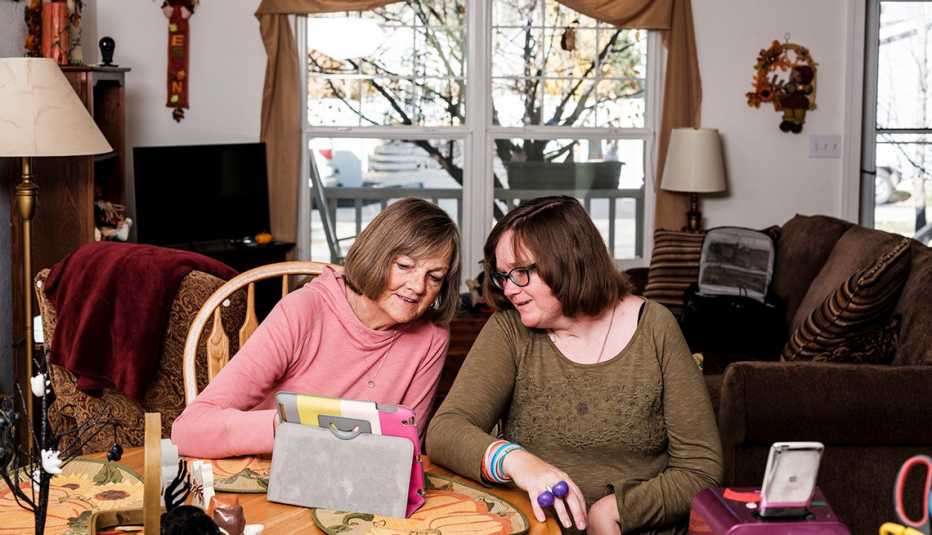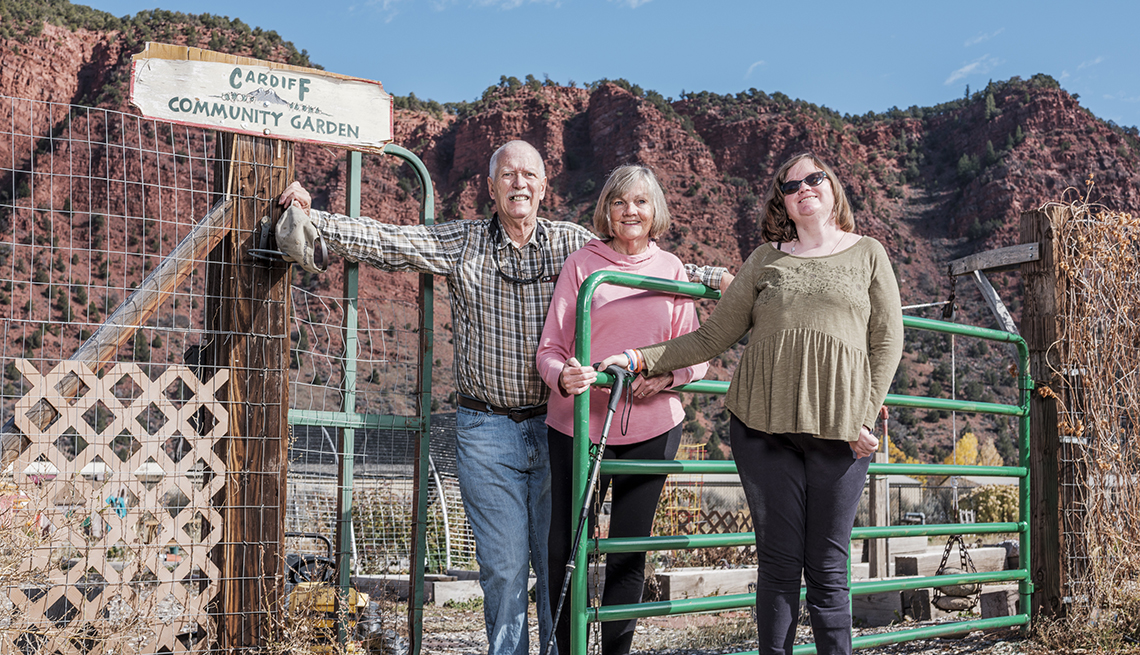Staying Fit
Alice Brouhard, 65, of Glenwood Springs, Colo., is a caregiver for her daughter Kara, now 36, who suffered a severe traumatic brain injury when an out-of-control skier crashed into her when she was 5 years old. The injury left her with significant visual impairment and seizures. Alice’s husband, Jim, now 70, developed memory problems after a benign brain tumor was surgically removed in 2001.
Kara has always been determined to live on her own, not in a group home or with us. I always thought that if we could find the right tools, I could help her do more and more, so I started going to conferences about helping people with disabilities using technology. I’m a registered nurse, so I was comfortable with medical equipment, but I wasn’t technologically adept. It was sheer determination on my part.


AARP Membership— $12 for your first year when you sign up for Automatic Renewal
Get instant access to members-only products and hundreds of discounts, a free second membership, and a subscription to AARP the Magazine.


For 10 years, Kara has lived in her own house six blocks away from us, thanks to a system we created by combining an iPad and two mainstream apps that give her verbal reminders that are literally recorded in her voice; another app gives her step-by-step picture and audio prompts for cooking and household chores. My husband, Jim, also relies on apps to give him reminders and keep track of his calendar and daily events; otherwise, he can’t remember what he did from one day to the next.
Now I know that she'll be fine when we're gone. That's a huge relief.
Kara has no concept of time or money and no math skills, so the technology gives her the inner voice she lacks that tells her what time to get up and get dressed, feed her dog and let it out, how to make meals for herself, and when to get ready for [therapeutic] horseback riding. We added music clips like "Who Let the Dogs Out?" and Weird Al Yankovic’s "Eat It" to prompt her to do certain tasks. What’s interesting is she has internalized some of the prompts and a lot of times she’s ahead of what she’s supposed to do. We also have nanny cam set up at her house so we can log in from anywhere and see that she’s OK.
I stop by almost every day to see her, and we have supportive people come help with housecleaning, meal planning and grocery shopping, and to take her out in the community. But the technology has been the real game changer because she’s able to live independently and she loves it! She’s always saying, "Mom, I want to live in this house my whole life. I want to die in this house, in my bed." She’s kind of a drama queen. Between the technology and her continued growth and development, she needs less and less support. Now I know that she’ll be fine when we’re gone. That’s a huge relief.
—As told to Stacey Colino

































































